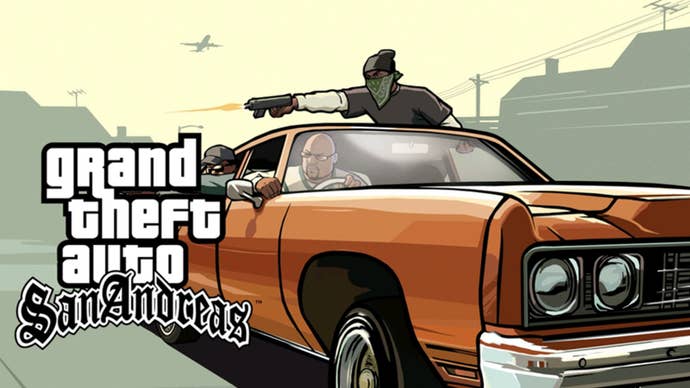It’s almost a quarter of a century since Grand Theft Auto 3 launched, in the process
effectively heralding the beginning of a decade in which video games were thrust into the
heart of a bitterly fought culture war.
For those too young to remember that era clearly, it’s hard to explain just how serious and
concerted efforts to censor, ban, or otherwise regulate the content of video games were. Socially conservative politicians, commentators, and opportunists on both sides of the
Atlantic rushed to make videogames a scapegoat for youth violence.
This wasn’t a new strategy – it was the same type of attack that had in previous decades
targeted music genres like rap and metal, or horror movies and other “video nasties”. There
was prior art in targeting video games, too: conservative commentators famously tried to
implicate Doom in the Columbine High School massacre in the late nineties.
GTA 3, however, was a turning point.
Attacks on video games had largely been
occasional pot-shots when there wasn’t much else in the news; right-wing newspapers could
reliably knock up some pearl-clutching about a video game when there wasn’t much else to
fill space with.
Now they have become the absolute core issue for conservative culture warriors.
GTA 3’s commercial success, piggybacking on the broader success of PlayStation in turning
games into a mainstream medium in that era, was part of the reason for that. The other part
of the reason was that GTA 3 included not just a lot a lot of violence but also allusions to sex
and prostitution.
It wasn’t the first game to include sexual content by any means, but it was this aspect that
sent many conservatives into a frenzy.
It’s no accident that arguably the biggest blow these
cultural warriors were able to strike against the GTA series was over the “Hot Coffee”
incident, in which it transpired that code and assets for a minigame in which the protagonist
had sex with his girlfriend had been left on the discs for GTA San Andreas, although it wasn’t
accessible to players without using mods.
In a game in which you could gleefully murder
people by their hundreds, it was an inaccessible animation of some fully-clothed humping that got the game re-rated Adults-Only by the ESRB, and earned Rockstar a warning from
the FTC.
Ultimately, though, this is an argument that conservatives lost pretty comprehensively.

Games were repeatedly confirmed to be protected speech in the United States and came to
be generally accepted as a creative medium deserving of free expression in most other
western jurisdictions.
The argument that violent games were responsible for violent crime
among young people, meanwhile, was debunked over and over again by statistical analyses
and psychological studies.
Most people probably treat this whole era as a historical curiosity – a growing pain for the
medium, similar to the backlash experienced by many other types of media in the past. Something that needed to be fought, and resisted, but which is now over and done with.
You might ask librarians and authors – at pretty much any point in the past century and a
half – how well letting your guard down in these situations, assuming a battle won to be an
issue settled forever, tends to work out.
With cultural conservatism now back in the ascendency in many countries, there are plenty
of groups on that side who absolutely have not forgotten how they lost the battle over
video games – and are aching to relitigate it from their newfound positions of sociocultural
power, using the smarter and sharper approaches that they’ve been honing for a decade.
Make no mistake – what you can see sliding into the medium’s most vulnerable faultlines
right now is the thin end of a very thick wedge. Conservative groups have weaponised
payment processors, as they have in many other cases in recent years, to demand the
removal of “adult” content from digital storefronts like Steam and itch.io.
It’s such a small demand; it almost seems so reasonable. Pornographic games make lots of
people a bit uncomfortable, especially if they’re being listed right next to your nice
wholesome games on a storefront.
The temptation to argue for appeasement is strong when
privately you’re thinking to yourself, “good riddance” – especially given that some (a small
minority) of the games involved are pretty unpleasant by most reasonable standards.
Not to trivialise Niemöller’s famous poem, but the whole reason they came for the
communists first was because they knew lots of ordinary people would quietly think, “good
riddance”. He’s speaking to a very specific and dark moment in history, but outlining a much
more universal strategy and the tragedy of how we fall for it again and again.
The whole
point of coming for the most objectionable group first is to open a fracture – to insert a lever
that you can then use to drive it wider and wider.
We already know how the wedge starts to widen. Even in this first round, games with LGBTQ+
themes – not necessarily explicit in nature! – were being caught up in the sweep and treated
as “adult” content.
This mirrors the strategy seen in book banning efforts in the United
States. Campaigners create a framework to ban “pornographic” content, and then expand
the definition of “pornography” to include anything related to the lives and existence of
minority groups they dislike, and ultimately any kind of content that makes them
uncomfortable.
There is no reason to believe that this is where those efforts would stop. Some people in the
industry may be willing to throw LGBTQ+ creators and consumers under the bus to appease
the conservative movement, but it won’t work – throwing out chum in the water only attracts
more sharks.
Conservatives who have carried a chip on their shoulder about the failure of
their campaigns against video games for decades are circling, emboldened by the realisation
that they can sidestep all those problematic free speech legalities by weaponizing
commercial financial infrastructure instead of courts and legislation.
Moreover, the defences that won this battle last time may no longer work. The modern
conservative obsession with redefining what is “healthy” (childhood vaccinations are out, raw
milk is in) based on political rather than scientific or evidence-based standards will equally
be applied to media consumption.
Scientific studies and analyses exonerating games of any
connection to youth violence mean little and less in an era when science is dismissed and
vibes, not evidence, drive public discourses and even government policy.
A movement with the taste of blood in its mouth from banning pornographic or LGBTQ+ themed
games will quickly find new targets in the long, long list of Things That Make Them A Bit
Uncomfortable – a list they’ve been carefully curating since the 1990s.
“Some people in the industry may be willing to throw LGBTQ+ creators and consumers under the bus to appease the conservative movement, but it won’t work – throwing out chum in the water only attracts more sharks”
This is a slippery slope argument, but the key figures in this movement – from Project 2025
author and Trump cabinet member Russ Vought all the way down to the small campaign
groups spearheading these censorship movements – have been quite open about their
strategy being to launch headlong down that slippery slope.
Pornography is the wedge issue; LGBTQ+ themes are prying the gap open further.
By the time
the mechanisms being used to target pornographic games or LGBTQ+ themed games are
turned on games for featuring any kind of sexualised content, or same-sex romance options,
or depictions of violence against conservative in-groups (expect loud outrage at any game in
which players can shoot at police officers, though blasting away at brown people in military
shooters will no doubt remain just fine), it’ll be a bit too late to start lobbying your political
leaders.
If you’re not even in the United States, you might never have that option at all – though you’ll still be caught in the global splash damage of US payment processors’
domestic decisions.
In six months or a year when some ambitious conservatives start thinking they can take
down GTA 6 and land a hammer-blow on a medium they’ve hated since Jack Thompson’s
heyday, the moment for the industry to really take a united stand in defence of its creative
freedoms will already have passed.
It’s now, when the games being targeted are relatively
small and perhaps even a little uncomfortable to get behind, that red lines over free
expression truly need to be drawn – and payment processors, perhaps, sharply reminded
exactly whose hand is feeding them.



